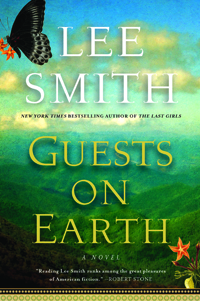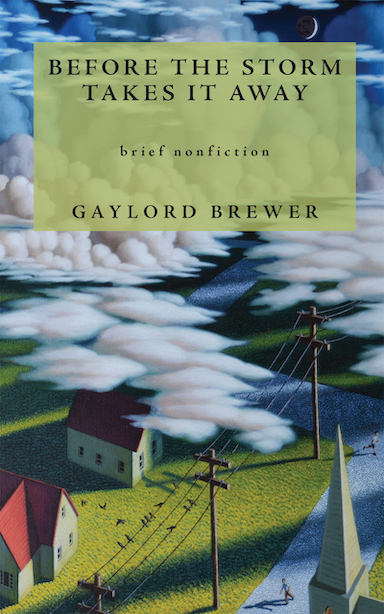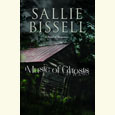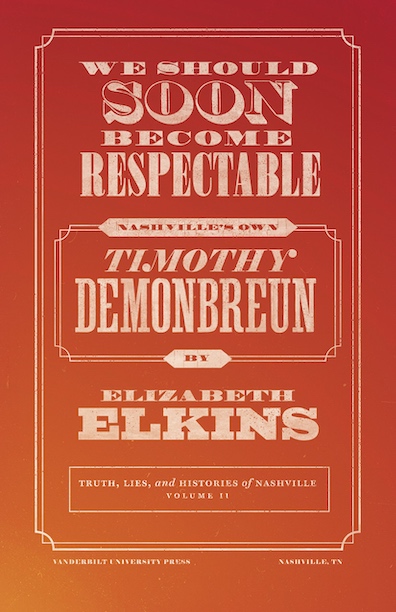A Princess in a Tower
In Guests on Earth, beloved novelist Lee Smith reimagines the last days of Zelda Fitzgerald
In the forty-five years since the publication of her first novel, former Nashvillian Lee Smith has become one of the South’s most revered storytellers and stylists. Her gifts and reputation make her distinctly qualified to take on the treacherous task of reimagining the last days of Zelda Fitzgerald, the muse behind The Great Gatsby, whose tragic life and more tragic end have haunted readers for generations. In Guests on Earth, Smith offers a strikingly unsentimental but nevertheless mesmerizing window into Zelda’s last days, casting her story alongside a bittersweet account of a traumatized young girl’s slow journey toward peace and understanding.
 Near the beginning of Guests on Earth, the novel’s narrator, Evalina Toussaint, sits at a table making paper dolls with the mercurial Mrs. Fitzgerald. Evalina has recently arrived at the Highland Hospital in Asheville, North Carolina, after suffering a breakdown in the aftermath of her mother’s suicide. Evalina knows that “Mrs. Fitzgerald” is Zelda, the wife of a famous novelist and a celebrity whose once-charming volubility has spiraled into madness. Under Mrs. Fitzgerald’s watch, Evalina fashions her paper doll a crown. “Now she has been chosen princess by everyone in the country,” she says. Suddenly, Mrs. Fitzgerald crumples the paper doll into a ball and casts it away. “It is far better to be dead than to be a princess in a tower,” she says, “for you can never get out once they put you up there, you’ll see.”
Near the beginning of Guests on Earth, the novel’s narrator, Evalina Toussaint, sits at a table making paper dolls with the mercurial Mrs. Fitzgerald. Evalina has recently arrived at the Highland Hospital in Asheville, North Carolina, after suffering a breakdown in the aftermath of her mother’s suicide. Evalina knows that “Mrs. Fitzgerald” is Zelda, the wife of a famous novelist and a celebrity whose once-charming volubility has spiraled into madness. Under Mrs. Fitzgerald’s watch, Evalina fashions her paper doll a crown. “Now she has been chosen princess by everyone in the country,” she says. Suddenly, Mrs. Fitzgerald crumples the paper doll into a ball and casts it away. “It is far better to be dead than to be a princess in a tower,” she says, “for you can never get out once they put you up there, you’ll see.”
Zelda Sayre Fitzgerald lived at Highland Hospital after being diagnosed with bipolar disorder in 1936. Guests on Earth begins with a newspaper account of the tragic fire of 1948, which claimed her life and the lives of eight other women at Highland. Readers will of course be drawn to the novel by Zelda’s presence, but she is not its heroine.
The novel’s true center is its narrator, Evalina, sent from New Orleans to Highland as a young girl by her mother’s guilt-ridden lover. At Highland she finds her way back to sanity and then tragically loses it again after a brief career as a professional pianist. On returning to Highland, she becomes reacquainted with Zelda, whose presence heightens Evalina’s sense of how desperately she wants to remain among the living.
 Zelda functions here in much the same role Daisy Buchanan plays in Gatsby: complex and tempestuous, at once tender and treacherous; an elusive muse flitting in and out of the action like a dragonfly. We see Zelda dancing, oblivious to those around her; smoking incessantly; scribbling in notebooks; looking on as her visiting husband guzzles beer after beer; delivering graceful swan dives into the hospital pool, lingering below the surface as if she might prefer not to emerge from its depths. On a patient retreat high in the mountains, an unstable intellectual prodigy who has taken to Evalina surprises her with a salamander he has caught in his hat. Zelda snatches the hat and casts it into the campfire, incinerating both. Dismayed at the horrified reactions of her fellow patients, Zelda curtly explains, “Salamanders live in fire.” When the young prodigy argues, she offers a chilling and foreboding retort. “I am a salamander,” she tells him. “I have lived in the fire for years, yet here I am.”
Zelda functions here in much the same role Daisy Buchanan plays in Gatsby: complex and tempestuous, at once tender and treacherous; an elusive muse flitting in and out of the action like a dragonfly. We see Zelda dancing, oblivious to those around her; smoking incessantly; scribbling in notebooks; looking on as her visiting husband guzzles beer after beer; delivering graceful swan dives into the hospital pool, lingering below the surface as if she might prefer not to emerge from its depths. On a patient retreat high in the mountains, an unstable intellectual prodigy who has taken to Evalina surprises her with a salamander he has caught in his hat. Zelda snatches the hat and casts it into the campfire, incinerating both. Dismayed at the horrified reactions of her fellow patients, Zelda curtly explains, “Salamanders live in fire.” When the young prodigy argues, she offers a chilling and foreboding retort. “I am a salamander,” she tells him. “I have lived in the fire for years, yet here I am.”
This harsh lesson sets the tone for a novel that, while ostensibly a historical account of a literary legend’s last days, is ultimately a universal meditation on the tensions between care and confinement; rehabilitation and incarceration. Evalina is cared for, but she is also a prisoner and a victim. Her condition appears to be a result of trauma, not an innate disorder; nevertheless, she receives the same dubious treatments as schizophrenics—most notably electro-shock therapy—and is conditioned to see herself as a fragile flower, incapable of surviving on her own. By the end of the novel, Mrs. Fitzgerald becomes a cautionary tale: a woman so damaged by obsolete treatments that more humane methods can no longer be effective.
Nevertheless, Highland is no torture dungeon; there is joy and laughter, friendship and love, music and imagination. In its mountain-aerie setting, it is a place where people who have been touched by madness are permitted to forget for a while how hard the world can be. Evalina becomes so swept up in friendship and the adventure of making music, staging plays and dance performances, and peering into the creative and imaginative pursuits of those around her that one could be forgiven for feeling as if she were writing about an artists’ retreat or a progressive college or even an upscale summer camp. But we know from the outset that the ultimate tragedy—the fire that will take the life of the troubled Mrs. Fitzgerald and eight others—looms at the end of the story, casting a shadow of melancholy and foreboding over Evalina’s ruminations.
Guests on Earth is a testament both to Lee Smith’s legendary gifts as a novelist and to the deep personal significance of its subject to her own family history. In an explanatory essay for The Algonquin Reader, Smith explains that her parents and her son all suffered from mental illness. Her father was an inpatient at Highland in the 1950s; her son Josh received treatment there in the 1980s. In the past, Smith has written movingly about her son, who died in 2003 and who, like Evalina, was a gifted pianist. Josh’s journey at Highland clearly looms in the subtext of Smith’s imaginative vision of Evalina’s time there. In her essay, Smith recalls walking the grounds outside the hospital with her son at the end of an especially splendid Western North Carolina winter’s day. “The entire arc of the sky shone red behind the crenellated battlements of castlelike Homewood, one of Highland’s most interesting older buildings. Of course I was reminded of the fire, perhaps the most horrendous hospital fire ever to occur in this country,” Smith writes. “Okay, I thought, I’m going to write that novel—whenever I can stand it.”
[This review appeared originally on November 18, 2013.]

Ed Tarkington holds a B.A. from Furman University, an M.A. from the University of Virginia, and a Ph.D. from the creative-writing program at Florida State University. His debut novel, Only Love Can Break Your Heart, is forthcoming from Algonquin Books. He lives in Nashville.


